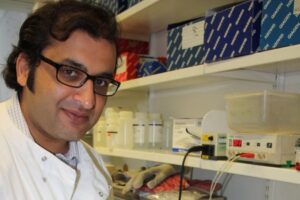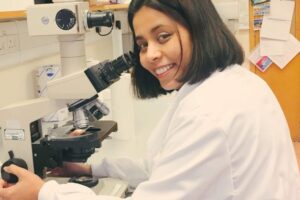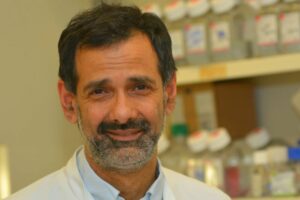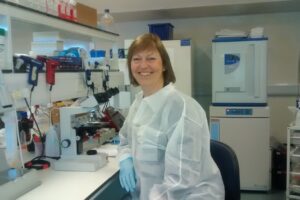Research
Finding new ways to beat childhood neuroblastoma
Neuroblastoma is one of the most common childhood tumours. We’ve been working hard to develop more effective treatments, and although this is making a difference, we’re still working towards a cure.
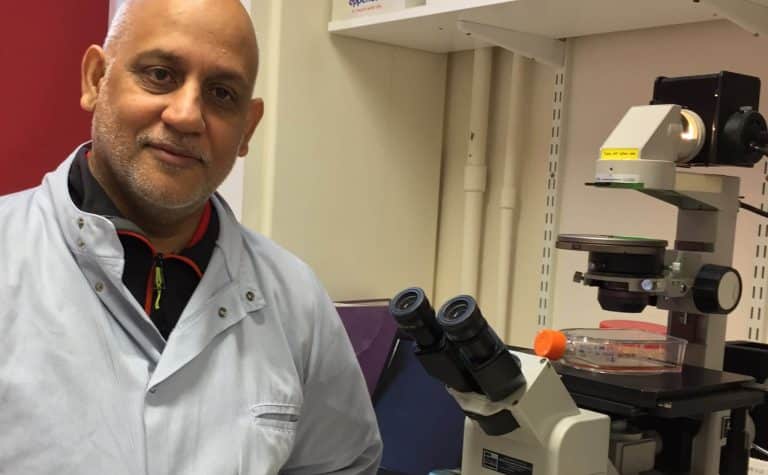
Project Details
- Oncogenic LGR5-mediated Wnt signalling as a target for neuroblastoma therapy
- Lead Researcher
- Dr Karim Malik
- Research Centre
- University of Bristol
- City & Institution Postcode
- Bristol, BS8 1TD
- Start Date
- 2 September 2013
- Project Duration
- 3 years & 6 months
- Grant Amount
- £143,702
Overview
We can now treat many childhood cancers much more successfully, and many children live longer or are cured completely. But some cancers still resist current therapies, or return even after responding well to early treatment. Neuroblastoma is one of the most common solid tumours affecting children and, although we have developed some more effective treatments, more than a third of children with this type of cancer still don’t survive longer than five years from diagnosis. So we urgently need to find new and better ways to tackle it We don’t yet understand enough about how neuroblastoma starts, or how the cancer cells carry on growing and can return even after intensive treatment. Dr Karim is looking at something we call the Wnt pathway, one of main biological ways that cell growth is regulated. It works by cells signaling each other to grow, or to make more cells. One cell produces and sends out a protein (called a ligand) that another cell recognises through another protein on its surface (a receptor). Normally the production of ligands and receptors is carefully regulated, but in cancer cells they may be over-produced, so too many cells are made.
What difference will this project make?
Too much Wnt pathway activity, leading to excessive cell growth, is part of what happens with many cancers. Dr Karim and his team have already discovered that highly malignant neuroblastoma cells produce high levels of a Wnt pathway receptor. They believe that this gives neuroblastoma cells the ability to reproduce without anything stopping them. This may also be how the cancer cells manage to survive the anti-cancer therapies that doctors treating children with this disease are currently able to use. Targeting these proteins offers the opportunity treat this kind of cancer, and in this important study Dr Karim and his team will analyse how they contribute to neuroblastoma growth. Understanding more about this will help them explore new approaches to treatment. This work will provide important new insights into the ways that neuroblastoma tumour cells grow and survive. Ultimately it should help doctors and scientists to find desperately-needed new therapies so that children with poor prognosis neuroblastoma have a better quality of life and a better chance of surviving in the long-term.
About the Research Team
Dr Malik and his team in Bristol have been studying childhood cancers, including neuroblastoma for a long time, and have already published a lot of their research. They will work together with many other scientists at the University of Bristol to share knowledge and technical expertise to help them achieve their aims in this project.
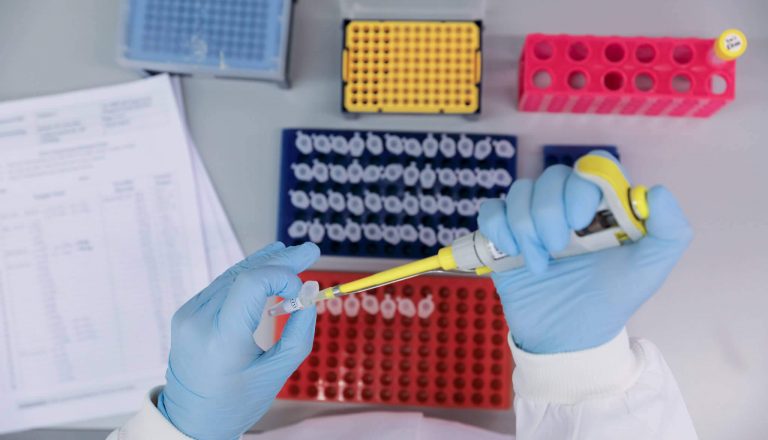
Learn more
Neuroblastoma is one of the most common childhood tumours. We’ve been working hard to develop more effective treatments, and although this is making a difference, we’re still working towards a cure. To achieve this we need to know more about how neuroblastoma starts, and how it resists even the most intensive treatment. This project will help us learn more.
We’re funding this project because in order to find better treatments for neuroblastoma we need to know more about how it starts and how it resists the existing therapies.
Thank you
This research project on neuroblastoma has been successfully completed. Your donations allow us to fund ground-breaking research that can improve treatments given to children with cancer. Thank you. Your help allows us to continue to find ways to drive up the chances of survival for children with cancer and reduce the toxic side effects that can affect the rest of their lives.
Other stories
We have lots of information to help you learn more about childhood cancer. From specific cancer types, to treatments and causes.

